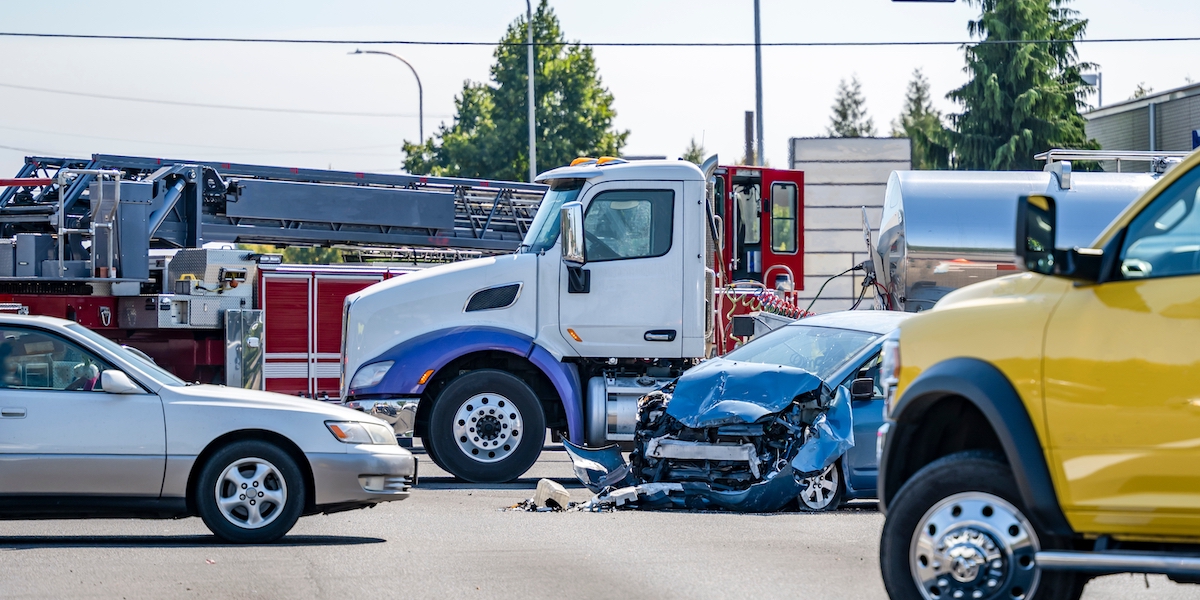In the aftermath of a truck accident resulting in injuries, it can feel overwhelming trying to establish which legal actions may be available for recourse. However, depending on your unique situation and jurisdictional laws involved, different paths towards obtaining compensation for damages incurred may exist. One avenue that some individuals pursue is filing a personal injury lawsuit. This is appropriate when another party’s negligence contributed to the accident itself. Through assistance from qualified attorneys, this type of engagement aims to provide individuals with funds denoting damages such as medical expenses or diminished work paychecks due to forced professional downtime. Furthermore, those pursuing personal injury lawsuits may also seek financial payments related not just to incurred losses but also future medical care expenses or pain and suffering. At CarAccidentAttorney.com, our directory service procures aggressive attorneys who are compassionate about advocating fiercely in favor of those who have serious injuries resulting from truck collisions, which is exactly what you deserve.

It’s important to consult with a qualified Minnesota truck accident attorney who specializes in truck accident cases to understand your specific legal options. They can evaluate the details of your case, guide you through the legal process, and help you pursue the appropriate legal action to seek compensation for your losses. Your two main options are to accept the settlement from the trucking company or their insurance provider, or take your case to trial.
Settlement vs. Trial
When pursuing a personal injury case after a Minnesota truck accident case, you typically have two primary legal options to resolve your claim: a settlement or a trial. Here’s an overview of each option:
Settlement
When personal injury cases are settled, it means that those affected have forfeited pursuing litigation. Settlements entail private negotiations carried out between both parties – the person who sustained injuries (plaintiff) and whoever caused them/the insurer (defendant) – until they arrive at an acceptable sum that fairly compensates for any harm endured.
Here are some key points about settlements:
Control: In a settlement, you have more control over the outcome since you actively participate in the negotiation process and have a say in the terms of the agreement.
Time and costs: Settlements are typically faster than going to trial. They can help you avoid the time, expenses, and uncertainties associated with a trial, such as court fees, attorney fees, and the potential for a lengthy legal process.
Privacy: Settlements are usually confidential, meaning the details of the agreement are not made public.
Guaranteed outcome: Once a settlement is reached and the agreement is signed, both parties are bound by its terms. It provides certainty about the compensation you will receive.
Trial
If a settlement cannot be reached or if you believe the offered settlement is inadequate, you have the option to proceed to trial. Trials involve presenting your case before a judge or jury who will make a final decision regarding liability and the amount of compensation you may receive.
Here are some key points about trials:
Decision by a third party: In a trial, the outcome is determined by a judge or jury. They will consider the evidence, testimony, and arguments presented by both sides to decide the outcome.
Potentially higher compensation: If successful, a trial verdict may result in a higher compensation amount than what was offered in settlement negotiations.
Time and costs: Trials can be time-consuming and expensive. They involve pre-trial preparations, gathering evidence, presenting the case in court, and potentially appeals. The process can take months or even years to reach a resolution.
Uncertainty: Trials involve inherent uncertainties since the outcome is determined by a third party. There is a risk that you may not receive the desired compensation or that the verdict may not be in your favor.
Ultimately, the decision to pursue a settlement or trial depends on various factors, including the strength of your case, the potential compensation offered in a settlement, the costs and risks associated with going to trial, as well as your personal goals and preferences. It is ultimately up to you! Consulting with an experienced personal injury attorney is the key to understanding the strengths and weaknesses of your case. A personal injury lawyer will help you weigh the pros and cons of each option, then make an informed decision that best suits your circumstances.
Contact CarAccidentAttorney.com
Move forward with your case today. With CarAccidentAttorney.com, you will have access to a team of Minnesota personal injury attorneys committed to fighting for justice on your behalf. The goal is to find fair compensation for those that suffer injuries from the negligence of another person. Contact CarAccidentAttorney.com today to get a free consultation with a personal injury attorney.
